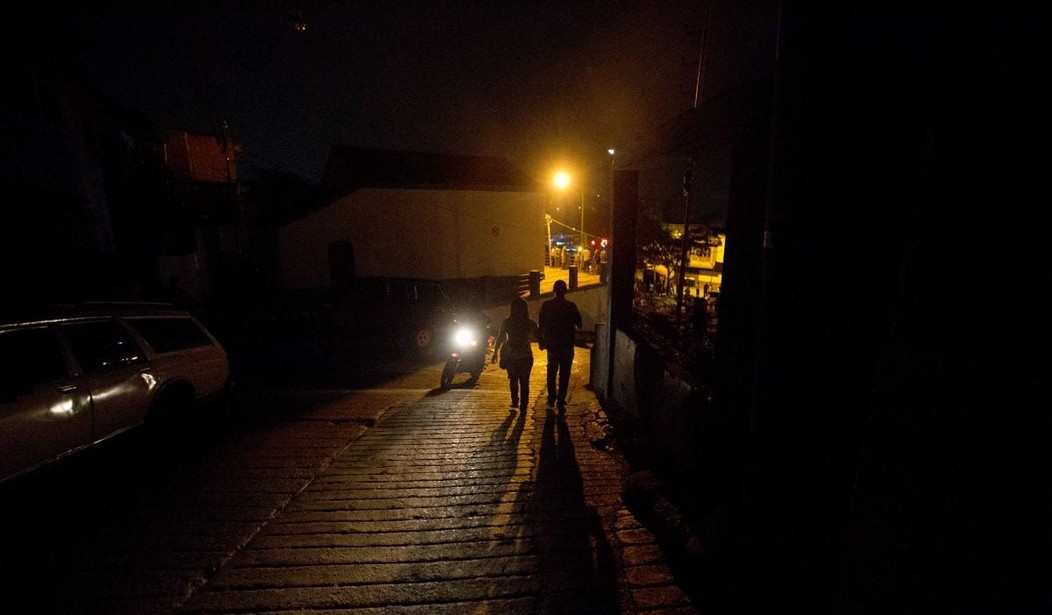An interesting survey out of Harvard published on Monday reveals that, for the first time, a majority of adults between ages 18 and 29 do not support capitalism.
The Harvard University survey, which polled young adults between ages 18 and 29, found that 51 percent of respondents do not support capitalism. Just 42 percent said they support it.
It isn’t clear that the young people in the poll would prefer some alternative system, though. Just 33 percent said they supported socialism. The survey had a margin of error of 2.4 percentage points.
The results of the survey are difficult to interpret, pollsters noted. Capitalism can mean different things to different people, and the newest generation of voters is frustrated with the status quo, broadly speaking.
All the same, that a majority of respondents in Harvard University’s survey of young adults said they do not support capitalism suggests that today’s youngest voters are more focused on the flaws of free markets.
That support for socialism will grow given time. The left has patiently been demonizing capitalism for decades, which is why the youth of today focus on the perceived shortcomings of free markets.
It would be interesting if the left focused its analysis on socialism — especially as it is practiced in Venezuela.
In a desperate attempt to save electricity, drought-stricken Venezuela has introduced a new concept to the workplace calendar: the five-day weekend.
President Nicolás Maduro has decided to furlough the country’s public employees — who account for a third of the labor force — for the bulk of the week, so they can sit through rolling blackouts at home rather than in the office.
“The public sector will work Monday and Tuesday, while we go through these critical and extreme weeks,” he said on his weekly presidential broadcast.
This assumes that Venezuela’s rainy season will comply with that timetable and rescue the country’s crippled hydroelectric plants.
Primary schools also will close on Fridays. Blackouts lasting at least four hours have been imposed across much of the country, leaving shopping malls in the dark and scarce food supplies at restaurants and markets at risk of spoiling.
Within a few hours of his announcement on Tuesday night, Maduro got a troubling glimpse of what happens when his emergency rationing measures go on a little too long.
Venezuelans riot.
During an outage in the state of Zulia that lasted more than 12 hours, angry residents torched a bus, looted stores and attacked the headquarters of the government power company Corpoelec, according to Venezuela’s El Nacional. It wasn’t immediately clear why the blackout went on for so long. There were reports of rioting and looting overnight Tuesday in at least three other Venezuelan states and several dozen arrests.
This is socialism at its best: trying to share scarcity and failing miserably. The country is close to a total implosion because the huge Guri Dam that supplies 60% of electricity for the country is barely operating due to the El Nino-caused drought. Venezuela is sitting on an ocean of oil but long ago decided to invest in hydroelectric power instead.
But lack of maintenance of its infrastructure and the drought have combined to produce a critical situation that may actually plunge the country into darkness in a few weeks unless the rains come.
But rainfall is not the main culprit, according to one Venezuelan economist:
Years of mismanagement, under-investment and a failure to learn from the past have taken their toll.
“This is a predictable, periodic event,” Monaldi said.
The socialist government says it has invested billions of dollars to shore up the electrical grid by adding a network of smaller, less centralized turbines that can burn Venezuela’s heavy crude. But according to a report in Venezuela’s El Universal, 60 percent of the stations are offline or operating below capacity because of lack of maintenance.
Then there’s the problem of mismanagement and poor planning at the Guri Dam itself. Recent photos show cattle wandering across desiccated plains where the vast reservoir has receded.
Venezuela’s economy is projected to contract 8 percent this year, with inflation running at 720 percent, according to the International Monetary Fund.
With the Guri crippled, so too are the steel and aluminum mills of Ciudad Guayana, and the lights already went out on its industrial vision years ago.
Do you think the Venezuelan people care that everybody is suffering equally? (They’re not.) You can focus on the flaws of capitalism all you want, but the flaws of socialism are self evident. It is a system based on wholly magical thinking that bears no relation to how the world really works. It misjudges human nature, and hasn’t a clue about how to manage anything larger than a farm collective.
You’d hate to have these ignorant young people learn the hard way about the real difference between capitalism and socialism — namely, that one system produces abundance and the other rations scarcity.
What Churchill said about democracy could also apply to capitalism: “Democracy is the worst form of government, except for all the others.”









Join the conversation as a VIP Member